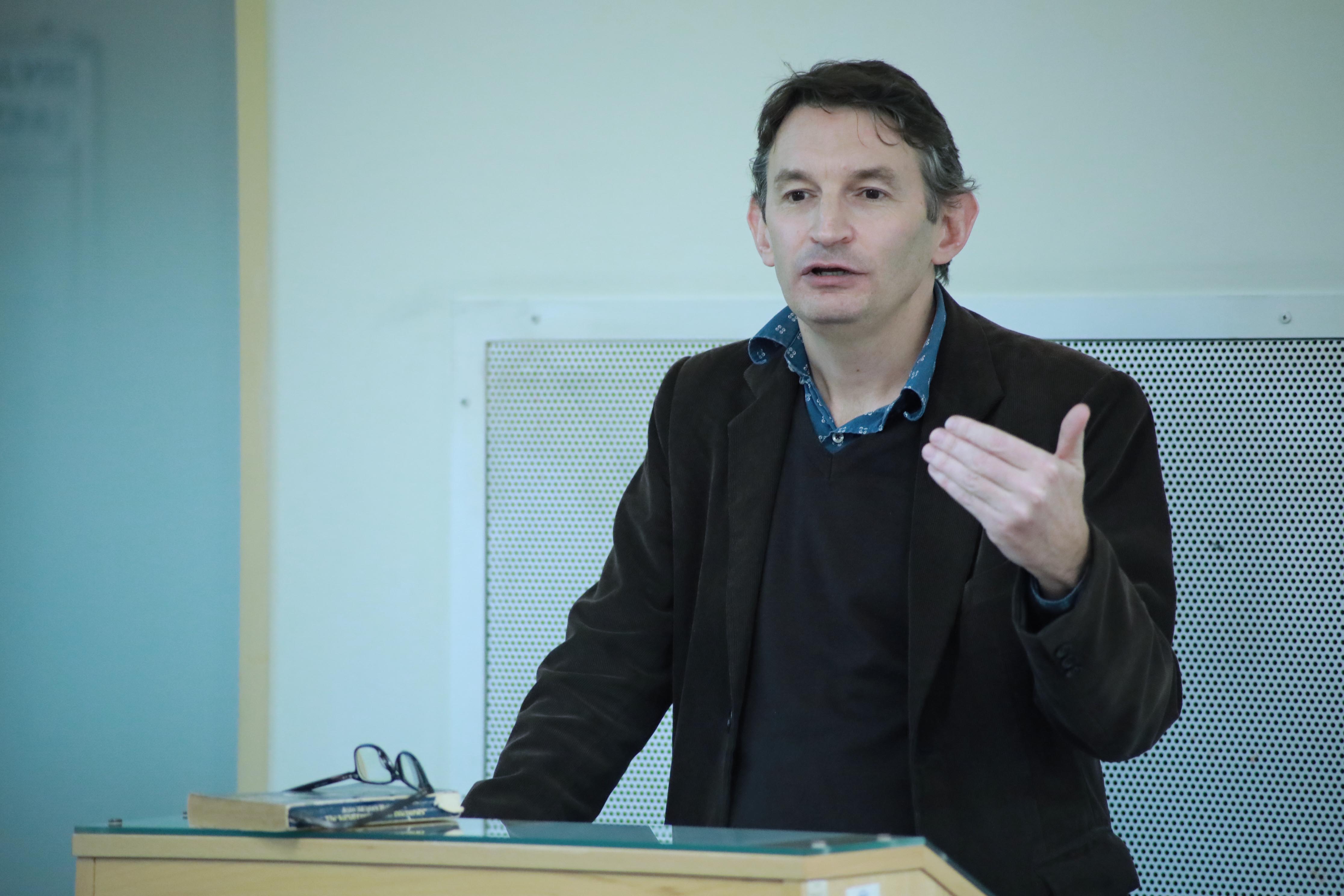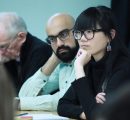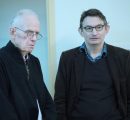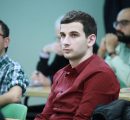
Rousseau, Democracy and Moral Liberty
2 min read YEREVAN, Armenia – On October 25th, the Political Science and International Affairs (PSIA) program of the American University of Armenia (AUA) held a debate on ‘Rousseau, Democracy and Moral Liberty.’ The topic was presented by Dr. Simon Clarke, associate professor, PSIA program chair, and director of AUA’s Turpanjian Center for Policy Analysis (TCPA). The event was part of a weekly series of PSIA seminars.
YEREVAN, Armenia – On October 25th, the Political Science and International Affairs (PSIA) program of the American University of Armenia (AUA) held a debate on ‘Rousseau, Democracy and Moral Liberty.’ The topic was presented by Dr. Simon Clarke, associate professor, PSIA program chair, and director of AUA’s Turpanjian Center for Policy Analysis (TCPA). The event was part of a weekly series of PSIA seminars.
Dr. Clarke presented the topic in three sections, with the aim of critically examining Rousseau’s justification for democracy over other forms of government and assessing possible solutions to the existing problem of democracy.
The first section introduced Rousseau’s argument for democracy. Rousseau argues that people make a social contract uniting themselves with one community and rule themselves through the general will, which means they decide how they want to be ruled. Only in this way can moral liberty be achieved. From this argument, it can be concluded that democracy is the most legitimate form of government because only under this form of government are people sovereign and able to achieve moral liberty.
In the second part of his presentation, Dr. Clarke discussed the major problem that occurs in democratic governments – when making laws by majority vote, people who disagree with the decision do not seem to have moral liberty. In this regard, the minority problem occurs, raising the question of the moral liberty of the minority.
Solutions to the above-mentioned problem were presented and critically examined in the third section of the presentation. They included the real will solution, the social contract solution, the voting solution, and the communitarian solution.
After critically assessing the proposed solutions, Dr. Clarke argued that the first three solutions fail to solve the minority problem, and that only the communitarian solution could be considered a reasonable answer. Furthermore, the professor explained that according to communitarianism, an individual’s identity is defined by being part of a community. Thus, the minority is also considered a part of that community. Looking at the minority problem through the communitarian approach, it can be concluded that the minority achieves moral liberty because it considers itself a part of the community.
Dr. Simon Clarke specializes in political philosophy and the history of political thought. He studied at the University of Auckland, New Zealand and received his doctorate from Oxford University. Before joining AUA, he taught at the University of Canterbury (NZ) and Asian University for Women (Bangladesh) and has also been a visiting scholar at Princeton University. He is the author of Foundations of Freedom: Welfare-Based Arguments Against Paternalism (Routledge, 2012) as well as articles published in the Journal of Political Philosophy, Political Studies, Ethical Perspectives, and Critical Review of International Social and Political Philosophy.
Founded in 1991, the American University of Armenia (AUA) is a private, independent university located in Yerevan, Armenia and affiliated with the University of California. AUA provides a global education in Armenia and the region, offering high-quality, graduate and undergraduate studies, encouraging civic engagement, and promoting public service and democratic values.






